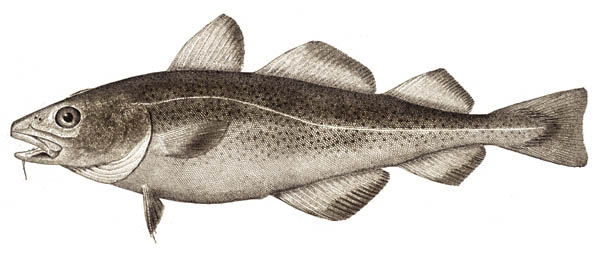Facts About Atlantic cod
The Atlantic cod, scientifically known as Gadus morhua, is a demersal fish that belongs to the Gadidae family. It is a favored choice among seafood enthusiasts and is commonly marketed simply as cod or codling. This species inhabits the western Atlantic Ocean, from North Carolina to Greenland, as well as the eastern Atlantic Ocean, ranging from the Bay of Biscay to the Arctic Ocean, including areas around Iceland and the Barents Sea.
Atlantic cod can grow quite large, reaching lengths of up to 1.5 meters (approximately 5 feet) and weights of up to 47 kilograms (around 104 pounds). On average, they measure between 61 centimeters and 1.2 meters (roughly 2 to 4 feet) and can weigh up to 40 kilograms (about 88 pounds). These fish attain sexual maturity between two and eight years of age and have a lifespan of up to 25 years. Unfortunately, they have been subject to intense fishing pressure, and in the 1990s, some cod stocks collapsed due to overfishing, causing substantial disruptions in many ecosystems.
Cod congregate in large groups to spawn from late winter through spring. Females release eggs that drift with ocean currents and develop into larvae. These fish often swim in schools, with the larger ones taking the lead during migrations. As apex predators, they feed on a diverse array of fish and invertebrates. Interestingly, cod exhibit cannibalistic behavior, especially among the younger ones, and they adapt their behavior based on the presence of predators.
These fish adjust their swimming and feeding patterns according to temperature fluctuations. Their diet is diverse, including fish, mollusks, crustaceans, and sea worms. Cod also host a variety of parasites. Effective management of cod populations is essential, as various stocks in the Northwest and Northeast Atlantic face differing levels of overfishing and conservation challenges.
The collapse of cod fisheries in the 1990s due to overfishing had significant economic and ecological repercussions. Recovering these populations has proven difficult due to the complex interactions within marine ecosystems. Ensuring the long-term sustainability of cod requires scientifically-based conservation strategies.

 Norway
Norway